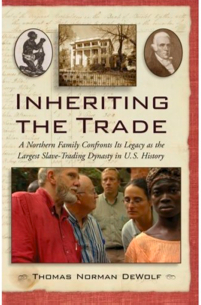Last time, I stirred up the deep waters of controversy underlying the placid surface of many novel, memoir, and creative nonfiction manuscripts by suggesting (and rather forcefully, too) that submissions with scene after scene spent amongst the limpid pools of smooth, conflict-free interaction — particularly if that interaction is merely observed by the protagonist (the boat in the metaphor? A passenger in that boat? A passing seagull?), rather than caused by or integrally involving him — might be less successful, in marketing terms, than ones that set the protagonist adrift amid a storm or two. (Okay, so s/he is IN the boat. Glad we got that settled.)
Oh, heck, I’m going to abandon the metaphor (toss it overboard, as it were) and just say it boldly: passive protagonists tend to bore readers, professional and unprofessional alike.
After this many posts in a row on protagonist passivity, I would hope that doesn’t come as a big shock to anybody out there.
And yet in general, aspiring writers DO tend to be shocked, or even appalled, at the very suggestion that their protagonists aren’t active enough. All too often, they hear critique of their protagonists as criticism of themselves — as if a dull character’s appearance in a manuscript must by extension mean its creator is…well, let’s just say non-scintillating, shall we?
Why? Because, many, if not most, writers have difficulty hearing manuscript critique as critique of — wait for it — their MANUSCRIPTS, rather than of themselves, their self-worth, their talent, and/or their right to be expressing themselves in print at all. (A phenomenon I have dissected at great length in the Getting Good at Receiving Feedback series, conveniently available under the category list at right, should you have happened to miss it.)
This response is equally likely, by the way, whether the manuscript is fiction, memoir, or academic book. I suppose this particular logical leap shouldn’t still give me pause at this late date. Over the years, I’ve seen writers draw similar conclusions from feedback that indicates that their work is slow-paced, too long, hard to market, or even poorly punctuated.
Your protagonist doesn’t do much, does he? seems to be an especially hard critique for many writers to swallow, though, probably since so many first books, fiction and nonfiction alike, tend to be at least partially autobiographical. Not everyone is thrilled to be told that she would be more interesting (or, heaven help us, more likeable) if she were a more active participant in her own life. Or if her life were more interesting in general.
Instead of, say, sitting at home and writing a book about it.
In answer to that very loud unspoken question all of your minds just shouted at me: yes, I can tell you from personal experience that memoirists actually are very frequently told by their agents and editors that their books’ protagonists could get into the game more.
“Wait,” I found myself thinking as my editor and I worked on my memoir, “my publisher is allowed to edit my LIFE? What am I supposed to do, travel backward in time so I may pick a few more fights?”
But I’m getting ahead of myself; writing the real to make it more interesting on the page — without, you know, lying — is near the top of my to-blog list at the moment.
(Now I’ve gone and ruined the surprise. Darn. And I wanted Flag Day to be so special this year.)
But a slight case of identification with one’s own protagonist is not the only reason that some writers squirm at the suggestion that s/he might be a tad on the inactive side. Even for non-autobiographical fiction, the very notion that something that one wrote oneself could possibly be less than marvelous seems to come as an immense shock to many aspiring writers.
I’m quite serious about this. I’m perpetually running into writers in my classes, at conferences, and online who seem to believe that the publishing industry should buy their books simply because they have written them.
“Target market?” these well-meaning souls echo, wrinkling their noses at the inference that a true artiste ever considers why someone out there might want to buy his or her art. “That’s the publisher’s job to figure out.”
Um, yes, in the long term, but in the short term, it’s very much the writer’s job to figure out.
While writing is unquestionably art — some might argue the most inherently creative one, since the writer uses fewer outside materials than other artists to create her effects — if one has any intention of doing it for a living, it just doesn’t make sense not to think about who might buy one’s books and why.
Why not, you ask? Well, would you expect an aspiring doctor to work all the way through medical school without first ascertaining that there were sick people in the world?
Again, perhaps a too-colorful analogy. But you know what I mean.
Yet many, if not most, aspiring writers seem to have genuine trouble seeing their own books as a third party might. That’s a serious stumbling-block to marketing one’s book to agents and small presses, because, let’s fact it, no matter how much a writer adores his manuscript, other people will have to admire it at least at much in order for it to get published.
Again, that’s not TOO great a shock to any of my long-term readers, is it?
So it is perfectly reasonable, and even necessary, to step outside your role as author to try to view your story as an outside reader might. (If you have trouble pulling this off — and the vast majority of writers do — you might want to take a gander at the GETTING GOOD FEEDBACK category on the list at right.)
Specifically, to make an attempt to see your protagonist as a reader might — and from a reader’s POV, an active, decisive character in the driver’s seat of the plot can be a mighty fine thing.
Why, that’s what we’ve been talking about all week, isn’t it? Funny how that worked out.
From a reader’s POV, conflict is not something to be avoided — it’s to be courted, because moving from conflict to conflict is how the protagonist typically moves the plot along. Protagonists who are purely reactive, as popular as they may be in movies (the trailer for half the dramatic films released within the last few years: “Coming soon to a theatre near you: the story of an ORDINARY MAN drawn against his will into EXTRAORDINARY events…”), are frequently frustrating.
“DO SOMETHING!” Millicent is likely to shout in their general direction.
Of course, in most book categories, you don’t want to go overboard in the opposite direction, driving the plot forward so quickly that there’s little time for character development. (Unless, one presumes, you happened to be writing THE DA VINCI CODE.) Non-stop conflict can result in a one-note narrative, one with very few dramatic highs and lows punctuating the story — but in most genres, if a book is going to be consistent, it’s much better to be consistently exciting than consistently low-key.
I’m going to make some of my higher-brow readers cringe by bringing this up, but one of the best recent examples of a protagonist who ostensibly has little control of the forces controlling his life, yet manages to fight back on practically every page is the HARRY POTTER series. (Don’t laugh; many of the English-reading adults currently in their twenties grew up on that series, and thus drew their ideas of exciting pacing from it.)
How does JK Rowling keep the tension high in books that are largely about a child with little autonomy going to school? The old-fashioned way: by including SOME kind of conflict on every page.
But not all of it has to do with fighting He Who Shall Not Be Named. More than half the time (until the last couple of books in the series, at least), Harry is beset not by the forces of ultimate evil, but by teachers who don’t like him, a crush he doesn’t know how to handle, mixed feelings about his elders, and so forth.
All that’s conflict, too.
If it’s important to your story that your protagonist is acted-upon (true in virtually every memoir professional readers see, incidentally, as well as most first novel manuscripts), adding subsidiary action can go a long way toward pepping up the pace. Why not add conflict over something very small and not related to the bigger causes of resentment in a plot, for instance?
Let’s take a story set in an office with an intensely sexist boss of the “Hey, good-looking, why don’t you sit on my lap while I discuss our new policy for file-sharing” variety. Now, our heroine and her cronies could type away in resentful silence while their boss leers at one of them for fifty pages on end, obviously.
But what if, in addition to all of that glorious silent passivity, some of the typers happened to be going through menopause — and started responding to their autocratic boss’ systematic harassment by violently quarreling amongst themselves over where the thermostat should be set during their various hot flashes?
Inherently quite a bit more dramatic, isn’t it? Lots of room for ongoing conflict there.
But not everyone out there is comfortable with this strategy, I’m sensing. “But Anne,” some of you passivity-penners cry, “you told us last time that there were a lot of reasons an agent, editor, or contest judge might take a dislike to a protagonist. Even if mine is just one of several coworkers being nasty to one another, won’t they like her even less?”
Ah, that old bugbear: the belief that a character must be a nice person to be likeable on the page.
Likeability tends to be a sore point amongst fiction writers, especially for those of us who write about female protagonists: when we include characters in our work whose political views are a bit challenging, for instance, or have sexual kinks beyond what the mainstream media currently considers normal, or even pursue their goals too straightforwardly, we fear being told that our characters are not likeable enough. So we tend to self-edit for harmony.
Translation: many writers will deliberately make a protagonist passive, on the theory that if she isn’t, this chick might not play in Peoria, according to someone in a New York agency or publishing house.
Frankly, I think the industry tends to underestimate Peorians, but the fact remains, it actually isn’t all that unusual for an agent or editor to ask a writer to tone down a particular character’s quirks. Usually, though, these requests refer to secondary characters (as in, “Does Tony’s sister really have to be a lesbian?” or “Could the Nazi brother be just a little bit right-wing instead?”) or to specific scenes (“Need she tie Bob down?”).
Occasionally, though, the request is not quite so helpfully phrased: “I liked the story, but I didn’t like the protagonist,” an editor will say. “If you fix her in X, Y, and Z ways, maybe I’ll pick up the book.”
Did I just hear some jaws hitting the floor again?
Yes, Virginia, it has become quite common for editors to ask for major revisions PRIOR to making an offer on a novel. Agents will frequent make similar requests prior to being willing to market a novel to editors. Sometimes several rounds of revisions, even, so the writer is essentially performing rewrites on command for free.
THAT’s how tight the fiction market is right now; ten years ago, most good agents would have laughed at such an editorial request before a contract was signed.
Much of the time, the author responds to such requests by making the character MORE passive — a very bad move, strategically. As I mentioned last week, it’s a common writerly misconception to believe that a passive protagonist is automatically a likeable one.
An interesting conclusion, isn’t it, given how often first novels and memoirs feature at least semi-autobiographical protagonists? Which begs the question: is the common writerly obsession with protagonist likeability at some level a cry to the industry: “Love my character — and me!”?
Bears a spot of thinking about, doesn’t it?
Psychology aside, it’s understandable that writers might mistake a propensity for avoiding confrontation for likeability: Passive Paul the protagonist is a courteous fellow, typically, always eager to step aside and let somebody else take the lead.
Courteous to a fault, he’s always doing nice things for others, generally thanklessly. A good employee, fine son/husband/potential partner, he is dependable. Almost all of his turmoil is in his head; he tends to be polite verbally, reserving his most pointed barbs for internal monologue.
Why, his boss/friend/wife/arch enemy can taunt him for half the book before he makes a peep — and then, it’s often indirect: he’ll vent at somebody else. His dog, maybe, or a passing motorist.
Romantically, Paul’s a very slow mover, too; he’s the grown-up version of that boy in your fifth-grade class who had a crush upon you that he had no language to express, so he yanked on your pigtails. He’s been known to yearn at the love of his life for two-thirds of a book without saying word one to her. Perhaps, his subconscious figures, she will spontaneously decide she likes me with no effort on my part.
And astonishingly, half the time, his subconscious ends up being right about this! Go figure, eh?
A delightful person to encounter in real life, in short; the kind of person you might like to see serving on your city council, library board, or living next door to you in a time of natural disaster.
But think of Paul from a reader’s point of view: he makes so few moves that he’s practically inert.
So why, if you’ll pardon my asking, would someone pay $25 to read a story in which he is the central figure — other than the beauty of the writing, of course?
That may sound like a cruel or dismissive question, but actually, it isn’t — it’s precisely the question that Millicent the screener is going to need to be able to answer if she’s going to recommend that her boss, the agent of your dreams, should read it, right? Isn’t it exactly the case the agent of your dreams is going to have to make to the editor of your fantasies in order to get her to acquire it?
And isn’t it, ultimately, a question your target reader will, at the very least, find of interest between the shelf and the cash register?
Next time, I shall talk a bit more about Passive Paul — and what, short of challenging him to a duel (for which he would probably not show up, we can only assume), his creator can do to get him into the game of his own life a bit more.
In the meantime, keep up the good work!






















